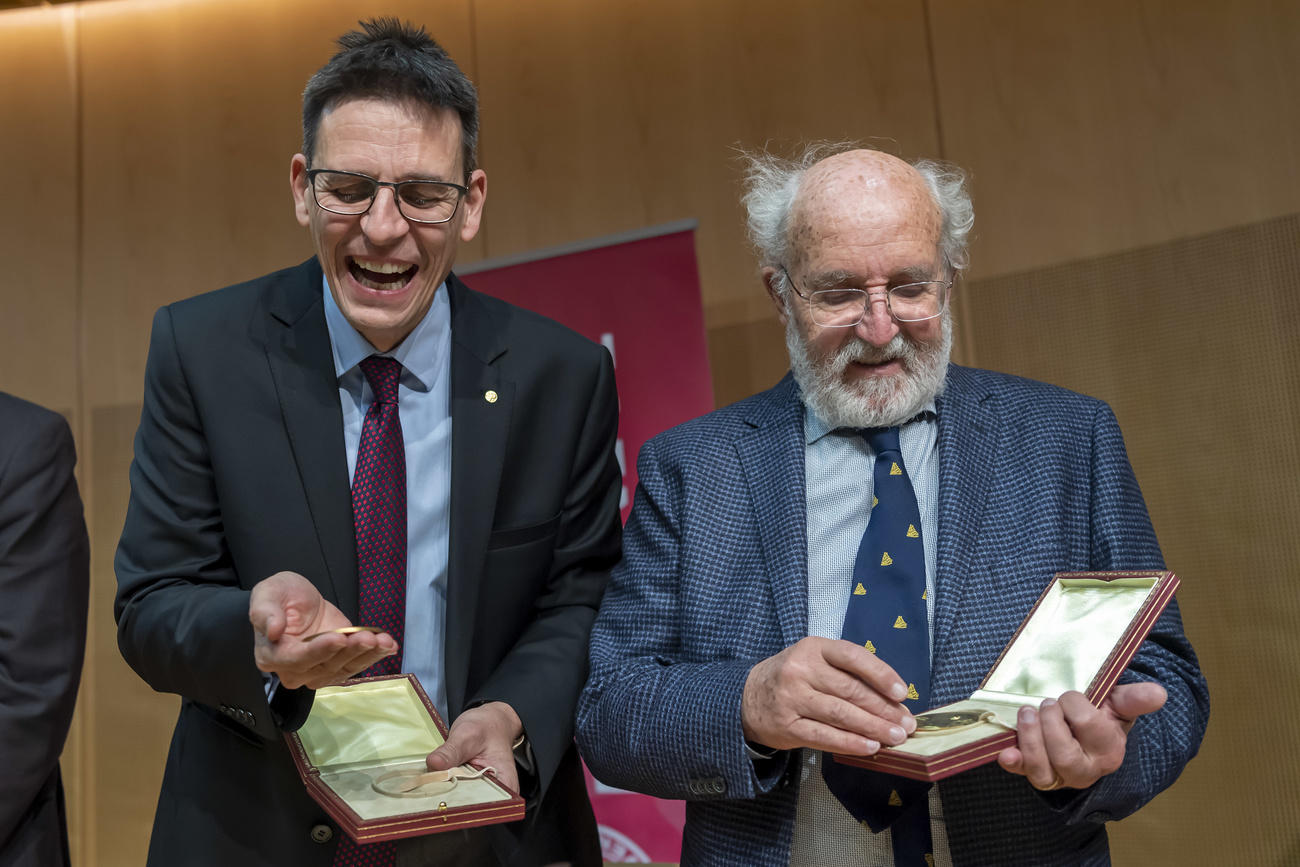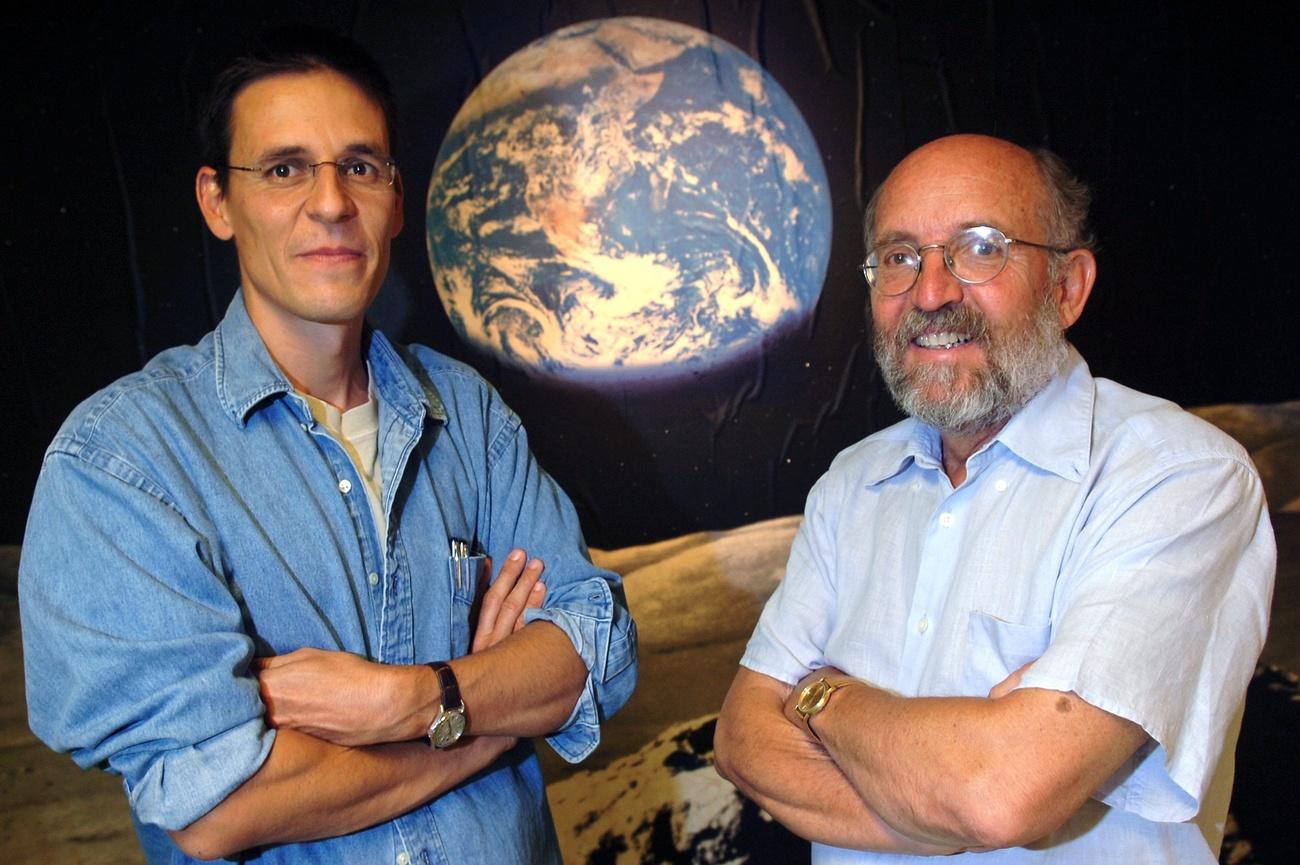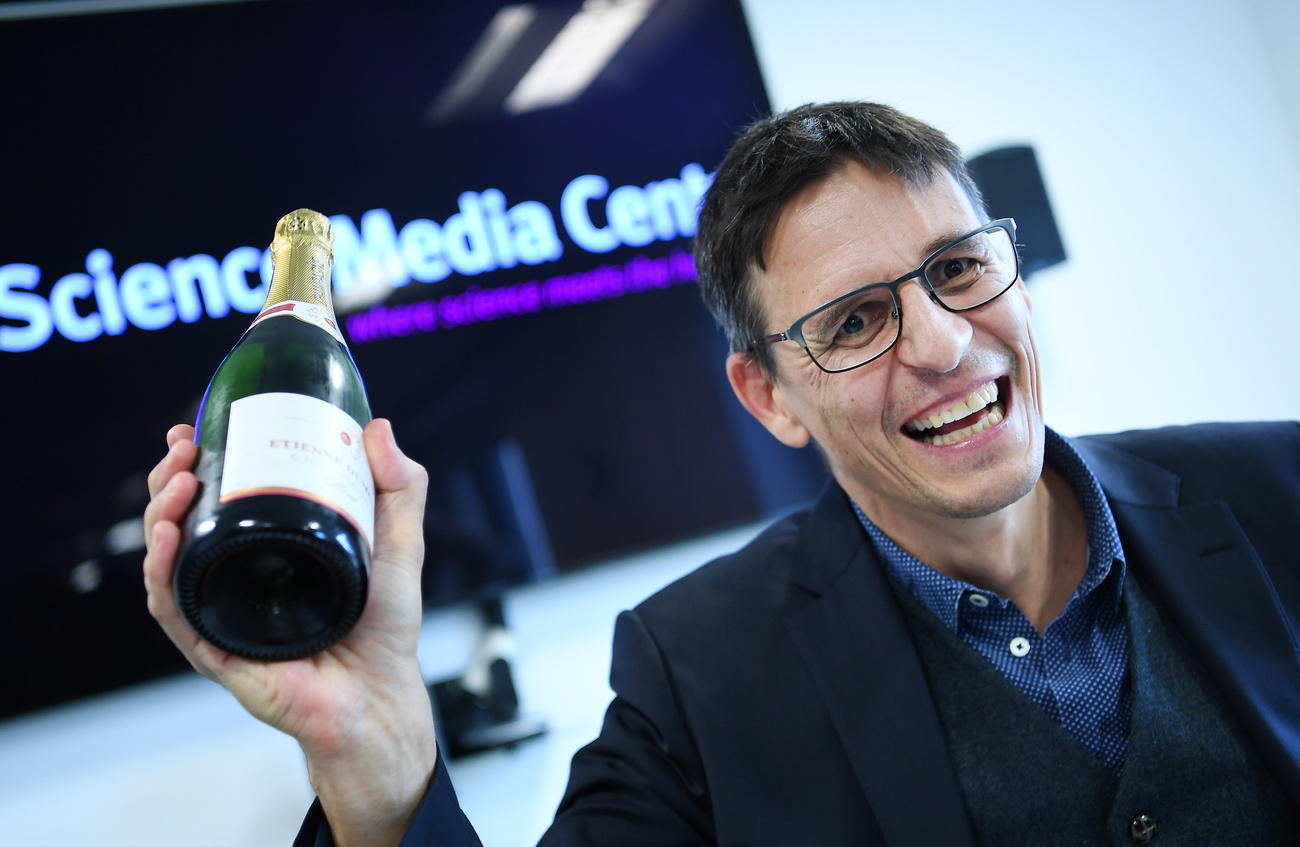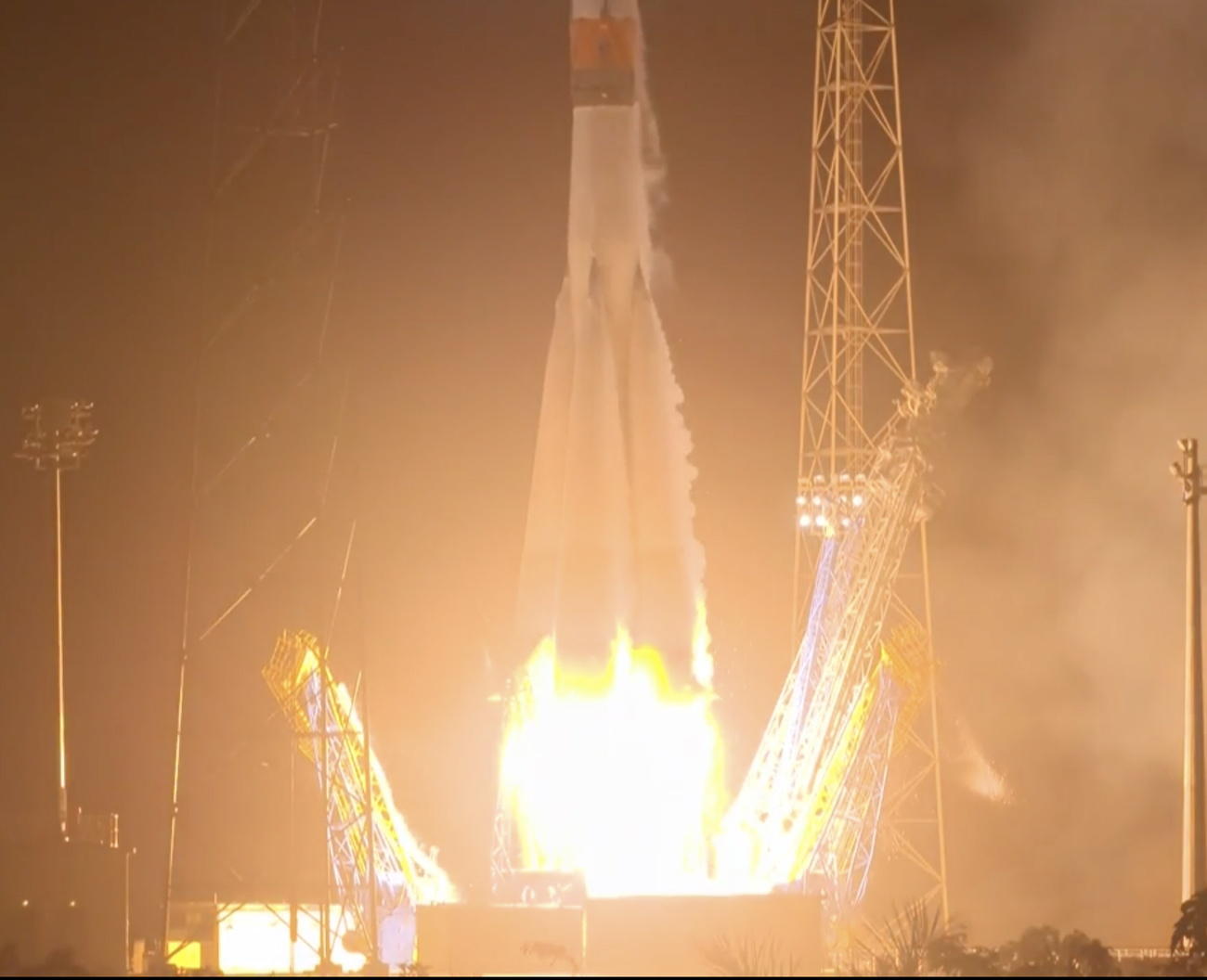‘With the Nobel Prize, you’ve reached the Olympus of science’

Joint winner of the Nobel Prize in Physics with his former professor Michel Mayor, Didier Queloz speaks to swissinfo.ch about waiting for the call from Sweden, the “Swiss touch” and how the award has changed his life.
This is an abridged version of an interview in which Queloz also addresses the question of artificial and extra-terrestrial lifeforms. The complete interview is available in French, German, Italian and Russian.

More
Swiss scientists win Nobel Prize in Physics
swissinfo.ch: You say the Nobel Prize came as a surprise because you had forgotten that October 8 was the day of the announcement. But all the same, given the importance of your discovery and the fact that you had been nominated several times, you must have expected it just a little bit…
Didier Quéloz: Yes and no. When you’re nominated, you know the discovery is important, so it would be wrong to say that it wasn’t somewhere in the back of my mind. But as it had been quite a long time since we’d been nominated – it must have started in 2008 or 2010 – there’s a kind of weariness, and you tell yourself that you’re not going to wait each time for it to be the right year. You can therefore imagine the state of shock I was in when they contacted me.
swissinfo.ch: The Swiss media practically ignored James Peebles to focus on the Swiss Nobel Prize winners. Does this kind of reaction still make sense given that the big discoveries are always international collaborations?
D.Q.: It’s clear: science is international, the fruit of great collaborations. If we take ‘our’ first exoplanet, 51 Pegasi b, we identified it thanks to the ELODIE spectrograph, [which is] a French tool on a French telescope principally financed by the French.
But the reaction is natural. This Nobel Prize has made me realise that there is a personalisation, a kind of appropriation of the discovery similar to when your national team wins a football match. It’s not the players who won, it’s you. It’s very human – that feeling of belonging to a group. And the effect was magic; there was a kind of collective joy.
‘The Nobel Prize is a bit like when your national team wins the football.’
swissinfo.ch: ELODIE has now been decommissioned, but its successors, the two HARPS and ESPRESSO, the world’s most powerful spectrographs, are Swiss. Does the tradition of watchmaking and precision mechanics make the Swiss strong in this area?
D.Q.: HARPS is not watchmaking, but you have engineers from the astronomy department at the University of Geneva who come from other businesses, including watchmaking. It’s true that we have a culture of doing a job well and of efficiency. We’re not Swiss for nothing! When you work abroad, even in Britain, a country relatively efficient and very competitive, you realise that Switzerland is very efficient. There’s a sort of know-how that we call the “Swiss touch”.
swissinfo.ch: The Nobel Prize gives you a public profile – not only the two of you, but also your field of research…
D.Q.: In the field of exoplanets, our work, my work was already extremely recognised. However, what I absolutely did not expect was the general impact of the Nobel Prize. Suddenly you become a sort of global science ambassador. Your field is highlighted, your work is highlighted, people try to understand it, it’s everywhere – and everyone benefits.
The Noble Prize has a phenomenal impact. It is the prize of prizes. When you have the Nobel, it’s over – afterwards you have nothing else. You’ve reached the nirvana of science; you’re on Olympus somewhere. It’s also a bit ridiculous. When you look at things rationally, you see that it’s a bit excessive. But it’s the fame, the history, the duration and the number of incredible names which have graced the Nobel Prize that make it what it is.
swissinfo.ch: The discovery of 51 Pegasi b overturned the entire theory of planetary formation. A Jupiter-like so close to its star that it circled it in four days – that shouldn’t exist. You must have rubbed your eyes…
D.Q.: I didn’t expect to find a planet at all. And when I saw that, for me, it wasn’t one. Michel was in Hawaii at the time. When he came back and he saw the data, he confirmed my analysis, but he said there was no way we could publish it without being absolutely sure.
It was a discovery which had its highs and lows for us. It was obviously very stressful, but at the same time, I had doctoral thesis which all PhD students would dream of: to find oneself in a situation where a whole theory collapses thanks to data you have produced, through unique analysis, obtained thanks to a process which had never been practised before.
But the data was there, and there was no other possible interpretation. So, for my part, there was absolutely no intuition involved – there was just rational reasoning and a critical regard of the experience. And that is exactly the attitude that I try to impart to my students. The idea that scientists are intuitive, for me, it’s a bit of a joke. I think that a good scientist has relatively weak intuition. On the other hand, a good scientist has exceptional rigour. They can feel when something is strange. But intuition in general, that takes you nowhere.
Didier Queloz
Didier Queloz was born in 1966. He holds a master’s degree in physics from the University of Geneva and completing postgraduate studies in astrophysics before beginning his doctoral work under the supervision of Michel Mayor, which led to the discovery of the first exoplanet in 1995.
He was subsequently appointed professor at the University of Geneva, where he still teaches, in parallel with a position at the University of Cambridge, where he directs a programme on the formation, structure and habitability of exoplanets. He has also worked at the JPL, which develops NASA’s space missions, as well as on the French CoRoT and Swiss CHEOPS space telescopes.
In October 2019, together with Michel Mayor, he was awarded the Nobel Prize in Physics for the discovery of 51 Pegasi b, the first exoplanet.

More
Is there life elsewhere?

More
What’s behind Switzerland’s star-studded Nobel success?
(Translated from French by Sophie Douez)

In compliance with the JTI standards
More: SWI swissinfo.ch certified by the Journalism Trust Initiative












You can find an overview of ongoing debates with our journalists here . Please join us!
If you want to start a conversation about a topic raised in this article or want to report factual errors, email us at english@swissinfo.ch.